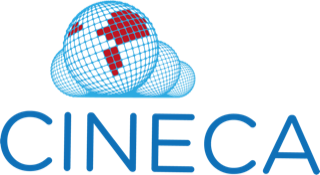Sustainability and SMEs
Background
Many of CINECA’s objectives have direct relevance to research topics ranging from computer science through to genomics. As such there will be classical outputs from the project through papers, publishing etc. after the project has finished. In comparison it can appear that the industrial relevance after the end of such a project is less certain. Direct industrial participation in CINECA is made by the SMEs (Small and Medium-sized Enterprises) The Hyve and Clinicageno, both companies with an interest in bioinformatics applied to research and clinical genomic problems. You may ask, what do private companies hope to gain from participating in the project? The key background driver for their interest in a project like CINECA are the possibilities for long-term, sustainable profits in the areas of data-driven science and medicine in which the Hyve and Clinicageno specialise. It is clear that genomic data analysis will be required at an ever-increasing scale, and the tools to exploit this are at an early stage of development. This means that smaller companies have an opportunity to develop new skills and products of interest to pharma or other large companies, driving potential sales and/or consulting activities that will allow these SMEs to grow, which will in turn further develop European expertise in these high-value areas. Another reason for SMEs to participate in CINECA-like projects of large consortia is growing their business network. Working closely with both public and private partners located in different parts of the world is not only stimulating but offers chances for future collaborations in other projects.
Specific focus areas for The Hyve and Clinicageno
The Hyve in particular sees opportunities in being able to use the developing GA4GH APIs to support large-scale genomic analyses in combination with clinical data (e.g. in OMOP). This will enable The Hyve to create more advanced translational medicine solutions in a more flexible way than larger companies can, generating increased capacity to sell licenses/consulting. The nature of the problem at hand, i.e. rapidly changing science and technical standards such as the aforementioned GA4GH APIs, can make this challenging. H2020 programs such as CINECA afford SMEs increased stability from which to develop potentially transformational technologies. One example is the “Personal Health Train” (PHT), an approach to federated science where the (very small) algorithm moves to the (very large) data rather than the cumbersome reverse that is current standard practice. This would mean that only the results need to be sent back to the requesting organisation, offering vastly reduced network demands and, more importantly, that privacy/security concerns for the handling of sensitive raw data and over executing external code can be successfully addressed. If the infrastructure to deliver such federated analyses can be created within CINECA - a major ambition of the project - it promises to make larger-scale analytics a reality, and potentially a very profitable technology for post-CINECA commercialisation.
Personal Health Train — Credit: Armin Roth, University of Tübingen
From Clinicageno’s perspective, post-CINECA commercial sustainability is centered around the increasing uptake of FAIR (Findable, Accessible, Interoperable, and Reusable) approaches to data management. We envisage that as research, clinical, and commercial organisations wake up to the reality of the costs of not applying such principles - the need for data and process sustainability in the form of accessible, reliable and reusable information - our services will become increasingly marketable. This could be considered as a “carrot” to attract people towards FAIR principles, but supporting this is also the “stick” of increasing regulatory pressure for adherence to FAIR principles from funding agencies such as the NIH and the EU. At minimum this could mean further opportunities to support other H2020 projects with FAIR data management, but the significant industrial attendance at the FAIRPlus [1] conference in January 2020 suggests that there will be increasing opportunities for Clinicageno to apply FAIR-enabling technologies which are being developed within CINECA/FAIRPlus in potential consulting engagements.
Future aims
In the immediate future, The Hyve plans to actively follow the progress of CINECA tasks, continuing in the role of Work Package Lead for CINECA’s work package developing Federated Joint Cohort Analysis, and train internal resources on the technological developments made in the project.
As for Clinicageno, the main focus in the near future will be implementing their Cineca use case for GDPR/FAIR compliant diagnostic reporting following FAIR principles. In addition, Clinicageno will try to generalise as many of the FAIR components as possible for use in other WP5 - Healthcare Interoperability and Clinical Applications - use cases and future commercial projects.

